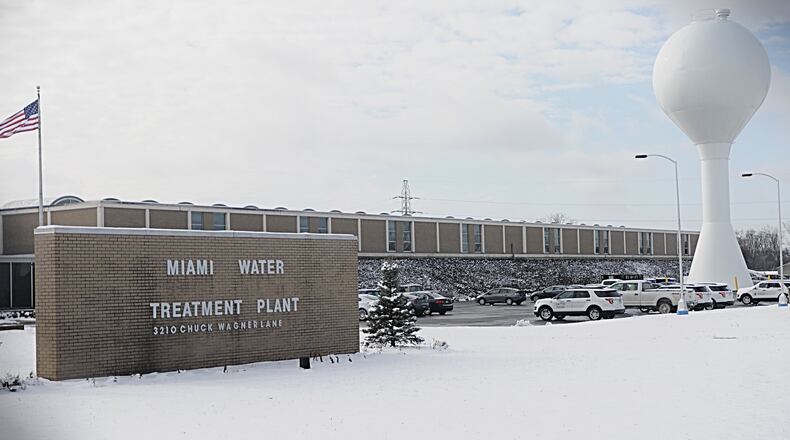After the water crisis, some Montgomery County officials called on the city of Dayton to invest in back-up generators capable of powering its entire water delivery system.
Water pumped by the city of Dayton is distributed to about 400,000 people, and more than half — 250,000 — receive water through a county-operated system.
Six or seven generators the size of train engines that cost about $45 million would be needed to fully back up the system, which is way too expensive and impractical, said Michael Powell, the city’s water director.
But the city is working to obtain a federal grant to add about five fixed generators at its plants, pump stations and lab that will assist in emergencies, Powell said.
“We’ll be able to augment the fleet (of generators) that we already have in strategic areas to enable us to keep some additional pressure in the system without needing to bring in as many generators from outside,” he said.
MORE: Dayton: ‘We do not need’ more generators for water system, would cost $45M
Patrick Turnbull, director of Montgomery County Environmental Services, said the county is pleased the city is taking steps to improve its system.
This “will help protect our region’s critical water infrastructure during natural disasters and power outages,” Turnbull said in a statement.
After every crisis or major event, the city evaluates what happened, how it responded and tries to identify areas for improvement, Powell said.
City staff working on tornado recovery identified a federal grant that could pay for improvements to the city’s water system , Powell said.
MORE: Montgomery County wants Dayton to invest in generators to prevent future water outages
The city’s water system already has significant redundancy, including two water plants and two pump stations, separate electrical feeds and mobile generators, Powell said.
But the city wants to acquire new, fixed generators for its water treatment plants, the pump stations and the water-testing laboratory, Powell said.
That means the city would not need to take mobile generators away from its well-fields or other locations to power key parts of the system, he said.
More than two dozen generators were deployed after the May tornadoes, some of which came from outside agencies as far away as Cleveland, according to city documents obtained by the Dayton Daily News through public records requests.
“The more generators you have, the less you need outside assistance,” Powell said.
During emergencies, the back-up generators could help maintain a level of pressure in the water system to keep limited service, supporting things like fire-fighting activities, Powell said.
“We have and always will continue to use generators,” Powell said. “We intend to continue to expand our mobile generator fleet.”
Dayton city commissioners on Wednesday are expected to approve the city’s application for a U.S. Economic Development Administration disaster recovery grant to make the water system more resilient.
“We have the letters of support. We have the grant ready,” said Hilary Ross Browning, a Dayton management and budget analyst, last week at a long-term tornado recovery group meeting. “We have our proposal done and our engineering assessment. We are ready to roll.”
MORE: Oakwood chocolate shop shuts its doors ‘with great sadness’
The city will also pursue a second EDA grant during the first quarter of 2020, Browning said, also related to water resiliency. It will ask for about $2 million for a project close to Wright-Patterson Air Force Base but she disclosed no other details.
The EDA disaster grant application process is spearheaded by the Miami Valley Regional Planning Commission, which is coordinating long-term community recovery efforts related to the tornadoes.
Dayton has two water treatment plants: the Ottawa plant at 1044 Ottawa St. and the Miami plant at 3210 Chuck Wagner Lane.
On average, the plants together produce about 45 million to 60 million gallons of water per day.
But officials say each plant individually can handle 96 million gallons of water daily, which is why the water system is highly redundant and one plant can shut down without impacting daily operations.
The back-up generators would not have helped during the “nearly catastrophic” water outage in February , Powell said, because that was caused by a burst pipe in the river and had nothing to do with the loss of power.
Dayton’s water system by the numbers
800: Miles of water mains
2: Water treatment plants and two main pumping stations
400,000: Customers served by the drinking water system in the city and Montgomery County
45 million to 60 million: Gallons of treated water pumped each day
Staying with the story
The Dayton Daily News has been investigation Dayton’s drinking water system since the city experienced a widespread water outage in February and another disruption after the Memorial Day tornadoes, including stories examining what caused the problems.


